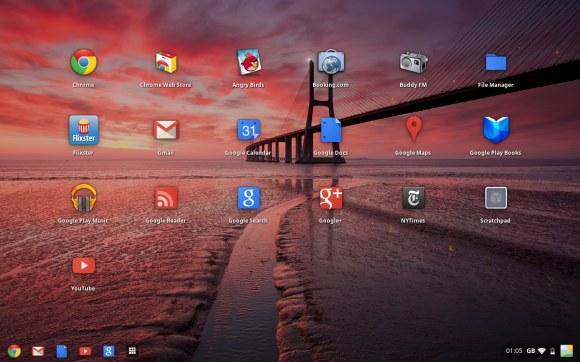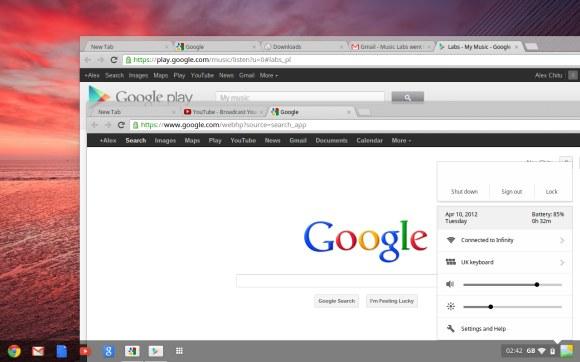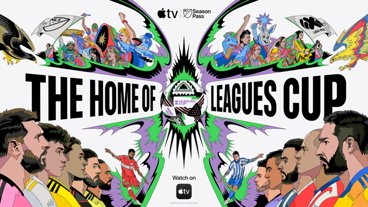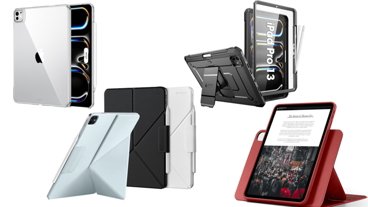Google remakes its web-based Chrome OS to look more like Windows
First outlined in July 2009, Google's Chrome OS was supposed to improve upon the PC experience by replacing the complexity of Windows with a simple, stripped down version of Linux hosting a web based environment modeled upon the Chrome browser, running HTML5 web apps.
"People want to get to their email instantly, without wasting time waiting for their computers to boot and browsers to start up," Google stated at the time. "They want their computers to always run as fast as when they first bought them."
Google also said Chrome OS would be "going back to the basics and completely redesigning the underlying security architecture of the OS so that users don't have to deal with viruses, malware and security updates."
In November of 2009. the company outlined more details about Chrome OS, which at the time largely targeted Windows netbooks. Just months later, however, Apple launched its own alternative to the low end PC: iPad.
No love for Chrome OS
While Apple had trouble producing enough iPads to meet demand, Google has seen limited interest in Chrome OS at all, despite creating its own Cr-48 prototype hardware for developers and licensing the design of "Chromebooks" running the new system to PC makers such as Acer and Samsung.
By the end of 2010, Gmail creator Paul Buchheit, who had since left Google for Facebook, predicted "ChromeOS will be killed next year (or “merged†with Android)," while open source evangelist Richard Stallman complained ChromeOS was an attempt to "push people into careless computing."
While Apple's iPad seemed to obliterate the demand for netbooks, it also stoked entirely new markets for tablet computing in education, marketing, government, healthcare and a variety of specialized markets ranging from airline flight bags to point of sale devices. Chrome OS hasn't blazed any sort of trails however.
While Chrome OS-based netbooks running both Intel x86 and ARM chips were supposed to ship by the middle of 2010, Google postponed its launch plans to the middle of 2011.
New polish for old Chrome
In May of 2011, Google floated plans for subscription-based "Chromebook" hardware that could be rented for $20 per month for students or $28 for business users.
In August of last year, Gartner indicated that all alternative PC platforms running Linux would remain niche operating systems with less than 2 percent market share. The company said it did not expect Google's Chrome OS or Android, nor HP's Palm webOS, to gain any significant market share in the next few years, citing application compatibility issues.
In an apparent new bid to salvage Chrome OS, Google is now revamping the system to look more familiar to Windows users, with a Windows 7 Start-like app launcher and taskbar, and a new "flexible windowing system" called Aura that provides "rich visuals, large-scale animated transitions and effects that can be produced only with the assistance of hardware acceleration."
Chrome OS vs Android vs Windows 8
In addition to being blindsided by iPad, Chrome OS has also fought with Android for attention from developers interested in Google's future plans. Throughout last year, Google focused on tablet form factor products with Android 3.0 Honeycomb, a product that largely overlapped upon the target audience of Chrome OS.
Android 3.0 Honeycomb ultimately didn't have much impact upon the tablet market, and was forced to compete against earlier, incompatible versions of Android used by low end tablet products from Amazon and Barnes & Noble.
Going forward, Google now faces entrenched competition from Apple's rapidly evolving iPad and its iOS ecosystem, with the $399 iPad 2 and the new Retina Display iPad starting at $499.
The company will also battle Microsoft for the attention of PC makers trying to enter the tablet market later this year, as Windows 8 ships in a version that can run on more efficient ARM-based devices.
Google has launched a series of web-based products that it ultimately canceled, including Google Answers, Buzz, Catalog, Checkout, Dodgeball, Froogle, Jaiku, Knol, Labs, Lively, Notebook, SearchWiki, Wave, and 411.
 Daniel Eran Dilger
Daniel Eran Dilger















 Amber Neely
Amber Neely
 Thomas Sibilly
Thomas Sibilly
 AppleInsider Staff
AppleInsider Staff
 William Gallagher
William Gallagher
 Malcolm Owen
Malcolm Owen
 Christine McKee
Christine McKee










61 Comments
BREAKING: Microsoft sues for GUI plagiarism!
And that's Launchpad, for frick's sake. Screw you, Google. Screw you even more. Even MICROSOFT did their own thing this time around. SCREW. YOU.
In an apparent new bid to salvage Chrome OS, Google is now revamping the system to look more familiar to Windows users, with a Windows 7 Start-like app launcher and taskbar, and a new "flexible windowing system" called Aura that provides "rich visuals, large-scale animated transitions and effects that can be produced only with the assistance of hardware acceleration."
The blogger that made that post has now removed the article, no reason given.
If you can't innovate, duplicate!!
That's downright embarrassing. Rip-off Window's look and feel, and while they're at it, snub OSX too by mimicking launchpad.
Cue the iHaters, trolls, and whiners trying to spin this that Windows/OSX does not corner the market on placement of icons, etc...
Well that makes it clear who they know their target audience is!
If you can't innovate, duplicate!!
That's downright embarrassing. Rip-off Window's look and feel, and while they're at it, snub OSX too by mimicking launchpad.
Cue the iHaters, trolls, and whiners trying to spin this that Windows/OSX does not corner the market on placement of icons, etc...
Where do those images come from? I haven't found if they're really what the Aura interface is going to look like or not. They might be real but a source link would be nice.